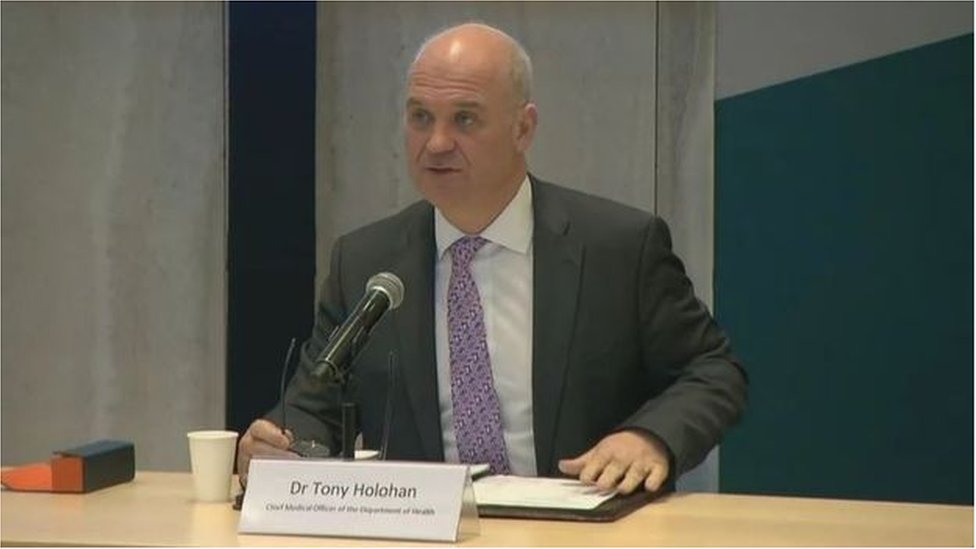The Irish government has authorised the use of the Pfizer-BioNTech Covid-19 vaccine.
The first delivery of the vaccine will be on 26 December with the first vaccinations taking place on 30 December, the health minister has said.
In a tweet, Stephen Donnelly said: “In what’s been such a tough year for so many, this is really great to see.”
Authorization Of The Jab
The Republic of Ireland returns to stricter coronavirus restrictions on Christmas Eve until 12 January.
Under the new restrictions, restaurants and gastro pubs must close for indoor dining from Christmas Eve and are only permitted to offer takeaway or delivery services.
Hairdressers, nail bars, cinemas, galleries and museums must also close.
COVID Scenario In The Country
Authorisation of the Pfizer-BioNTech Covid-19 vaccine in the country comes at a time when coronavirus cases are rising significantly.

“Ireland now has the fastest growing incidence rate in the European Union,” Chief Medical Officer Dr Tony Holohan has said.
There have now been a total of 2,192 Covid-19-related deaths in the Republic of Ireland, and a total of 83,073 confirmed cases.
The 14-day incidence rate of Covid-19 per 100,000 people is 166, which has risen from 153 recorded on Wednesday.
The chief medical officer has said that unfortunately none of the indicators of the disease are showing encouraging signs, RTE News reports.
The National Public Health Emergency Team (NPHET) recommended stricter measures, including the closure of non-essential retail, amid warnings over the increase in Covid-19 cases.
Taoiseach (Irish PM) Micheál Martin said the measures equated to Level 5 on Ireland’s Covid-19 response plan – with a few adjustments.
New Restrictions
These included non-essential retail remaining open, with guidance that shops do not run January sales.
NPHET said it does not believe the new measures will be sufficient to reduce the numbers far enough.
Professor Philip Nolan said he does not think the measures being introduced will be enough to bring the virus under control and this time it is coming “really fast and really hard” and the next few days will determine what happens in January.
Speaking on RTÉ’s Morning Ireland, the chair of the Irish Epidemiological Modelling Advisory Group for NPHET urged people to keep numbers to a minimum and not to spend too much time together as it is long gatherings in indoor settings where control of the virus is lost.

Under the new restrictions, people in the country may travel beyond their own county until the end of Stephen’s Day, the Irish cabinet announced.
However, there will be no new inter-county travel allowed after 26 December.
Household visits are also to be reduced to one other household from 27 December, but three households will still be allowed to mix on Christmas Day.
From 1 January, no household mixing will be allowed, except for essential family reasons, such as providing care to children, elderly or vulnerable people.
Schools will return as normal in January after the Christmas break, while childcare services and early learning will also continue as normal.
Travel restrictions from Britain will remain until 31 December under the new rules.






Leave a Reply
You must be logged in to post a comment.